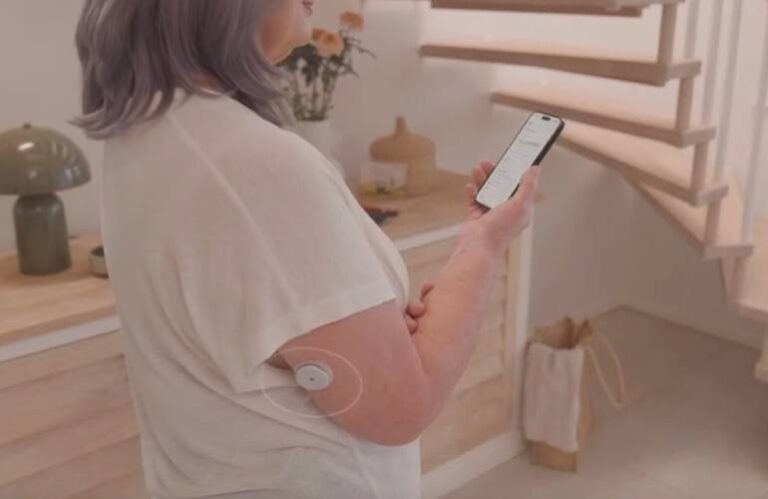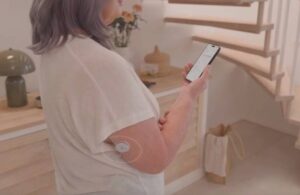
Each year, the diabetes community gathers for the International Conference on Advanced Technologies and Treatments in Diabetes (ATTD).
At the 17th edition earlier this month, some of the biggest names shared new research and technologies that are advancing the diabetes field. Dexcom, Abbott, Medtronic and others have contributed in this space, but some new technologies are also coming to the fore.
Here are the biggest stories from this year's ATTD conference in Florence, Italy. (You can also check out ATTD's biggest news in 2023 and 2022. )
Dexcom's Direct-to-Watch feature
Dexcom announced at ATTD that it has introduced direct-to-Apple-Watch functionality for G7 continuous glucose monitor (CGM) users.
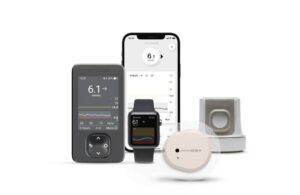
The company plans to gradually release it to all G7 iOS users worldwide by the end of the second quarter of this year. This means the G7 will be the only CGM system that connects directly to your Apple Watch without having to carry your iPhone with you. Those using the G7 will have access to this feature as soon as it launches in their country.
In addition to watch functionality, Dexcom announced positive data supporting CGM and automated insulin dosing (AID) connectivity. Data includes CGM results using both Tandem Diabetes Care t:slim X2 pump and Insulet Omnipod 5.
Additionally, the company has launched Dexcom ONE+ in new regions and has more data to back up its technology. Dexcom started launching ONE+ in Europe about a month ago. The system was launched in eight markets, he said, within a month of first becoming available.
While all this was happening, Dexcom also received its first FDA approval for an over-the-counter CGM.
Abbott says combination of CGM and GLP-1 can boost diabetes treatment
GLP-1 receptor agonists, such as Ozempic and Wegovy, offer treatments for diabetes and weight loss. This therapeutic class, glucagon-like peptide 1, has been shown to lead to improved blood sugar control and weight loss. This drug class continues to grow in popularity and is increasingly prescribed for type 2 diabetes.
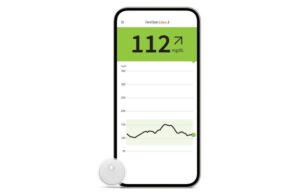
Abbott said patients with type 2 diabetes who used GLP-1 in combination with FreeStyle Libre CGM showed significant improvements in HbA1c compared to GLP-1 alone.
Last year, BTIG's analysts spoke with experts to determine the potential impact of GLP-1 on the diabetes market. Shortly thereafter, Abbott shared real-world data highlighting his GLP-1 as a potential accelerator for the FreeStyle Libre CGM product family.
“Data analysis confirmed that people using GLP-1 drugs to manage diabetes had even better outcomes when combined with FreeStyle Libre technology,” Dr. Mahmoud KazemiChief Medical Officer of Abbott's Diabetes Care Business.
Roche Diabetes Care unveils new CGM
At ATTD, Roche introduced the Accu-Chek SmartGuide CGM product.
Julien Boisdron, Roche Diabetes Care's chief medical officer, called it “a solution that goes beyond CGM” during the event. He explained that the product consists of a sensor and two applications, which also help in data visualization and prediction.
The Accu-Chek SmartGuide shares some similar characteristics with other CGMs on the market, such as those made by Abbott and Dexcom. It features a 14-day wear period, a one-step application process, and is waterproof. However, this CGM differs from some latest generation systems and requires initial adjustment.
Roche aims to bring real-time CGM to both type 1 and type 2 diabetic populations, including patients on insulin therapy. Users can share their data with medical professionals and have differentiated predictive algorithms built-in.
The CGM remains a research device that has not yet been approved for sale. Analysts aren't sure there are enough differentiators to really compete with market leaders Abbott and Dexcom.
Insulet's Omnipod 5 has been shown to be superior to standard pump therapy
Results from a clinical trial comparing the Insulet Omnipod 5 automated insulin delivery system to non-automated insulin therapy demonstrated improved glycemic and patient-reported outcomes in type 1 diabetes using a wearable patch pump.
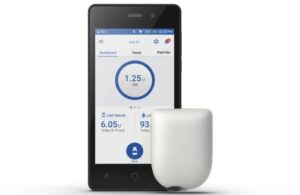
Use of Omnipod 5 improved range by 17.5%, reduced HbA1c, and reduced hypoglycemia time. It also lowered the average blood sugar level for an individual whose baseline HbA1c level was above the recommended target.
According to Insulet, the study met all primary and secondary endpoints. Exploratory endpoints showed no significant difference in his total daily dose change from baseline or his BMI change from baseline between Omnipod 5 and controls.
Insulet also presented positive patient-reported results related to three key psychosocial measures. It included measures of diabetes distress, hypoglycemia confidence, and diabetes-related quality of life as secondary outcomes.
The use of Omnipod 5, as reported through separate studies, resulted in statistically significant and clinically meaningful improvements in each of these three measures compared to controls.
Know Labs continues to advance non-invasive CGM
Interim results published by ATTD's Know Labs highlighted the accuracy of its non-invasive glucose monitoring sensor.

Last month, the company announced KnowU, an FDA-submitted wearable CGM set. KnowU's sensors use spectroscopy to direct electromagnetic energy into a substance or material. This allows unique molecular signatures to be captured. This technology is integrated into wearable, mobile, or benchtop form factors.
Seattle-based Know Labs reported a mean absolute relative difference (MARD), a measure of accuracy, of 11.1%. By comparison, market-leading Dexcom and Abbott minimally invasive CGMs demonstrate higher levels of accuracy. Dexcom's G7 previously demonstrated a MARD of 8.2%, while Abbott's FreeStyle Libre 3 was 7.6%.
But Know Labs' non-invasive product remains an interesting prospect, given that there are currently no FDA-approved CGMs of this type. Know Labs executive Larry Ellingson emphasized the importance of this initial data.
“Achieving this level of accuracy in the first study using a blood reference device is truly remarkable,” Ellingson said.
Medtronic's MiniMed 780G performs well worldwide
The data shared by Medtronic at ATTD included the largest data set from early U.S. users of the MiniMed 780G automated insulin delivery system. The results were built on his three years of data from over 100,000 real users who exceeded international coverage targets.
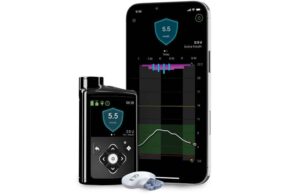
Medtronic's latest generation automated insulin delivery system, the MiniMed 780G, received FDA approval in April 2023. The current version uses the latest Guardian 4 technology, and the “SmartGuard” mode eliminates the need for finger pricks.
New data released by Medtronic aimed to evaluate the MiniMed 780G's ability to help users achieve time-in-tight-in-range (TITR) goals. This new metric more accurately reflects blood sugar levels in people without diabetes. The company defines this as the percentage of time a person spends with blood sugar levels in the 70-140 mg/dL range.
Medtronic's results showed that users (13,461) achieved a TITR of greater than 56% when using the recommended optimal settings. The company defines these optimal settings as a set goal of 100 mg/dL over 2 hours of effective insulin time.
“In the absence of a cure, our goal is to continually innovate treatments to maximize people's health without increasing burden, and that is evidenced by our state-of-the-art AID system. ,” said Dr. Robert Bigarsky, chief medical officer of Medtronic Diabetes.


